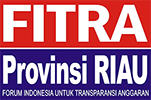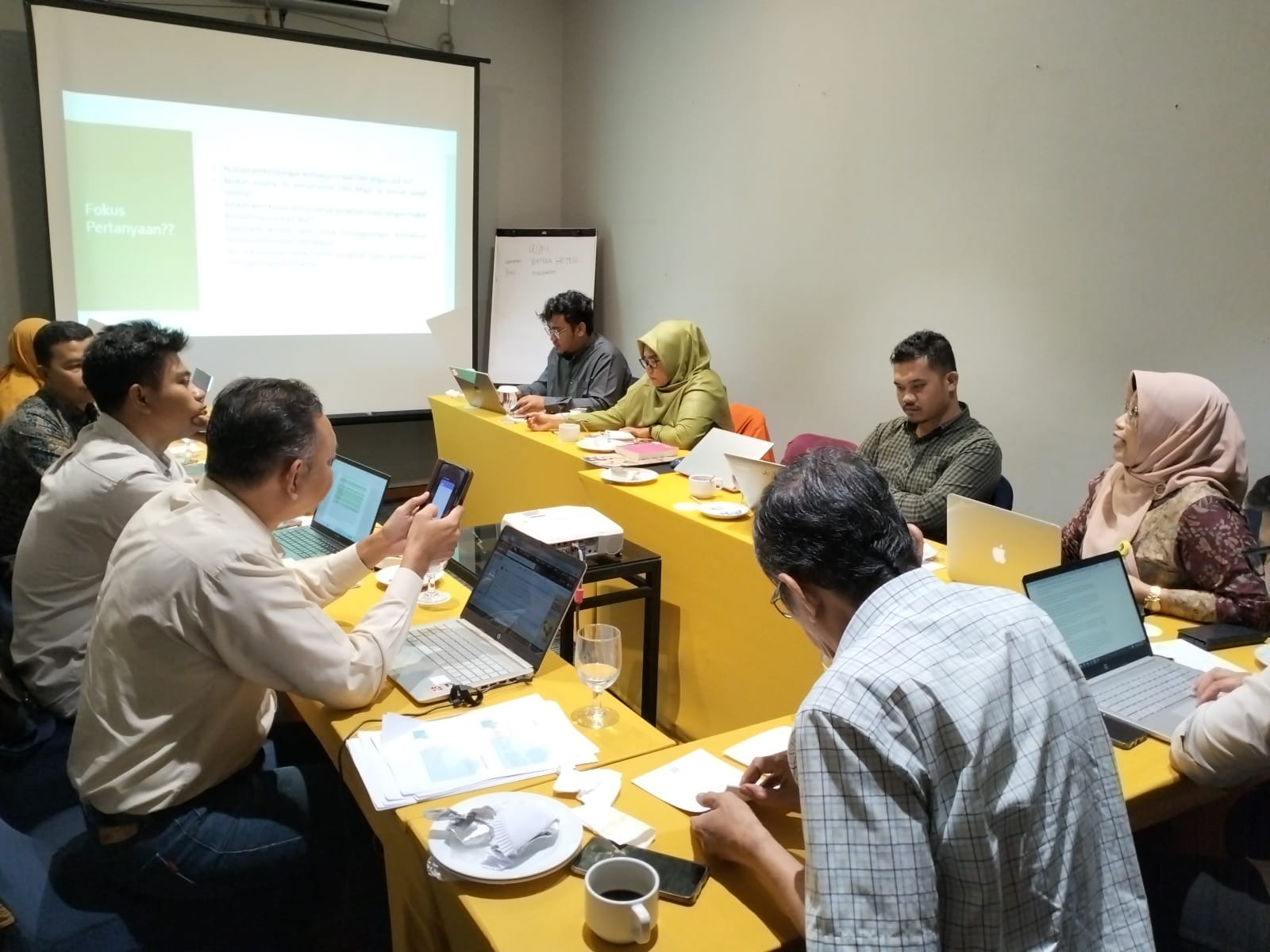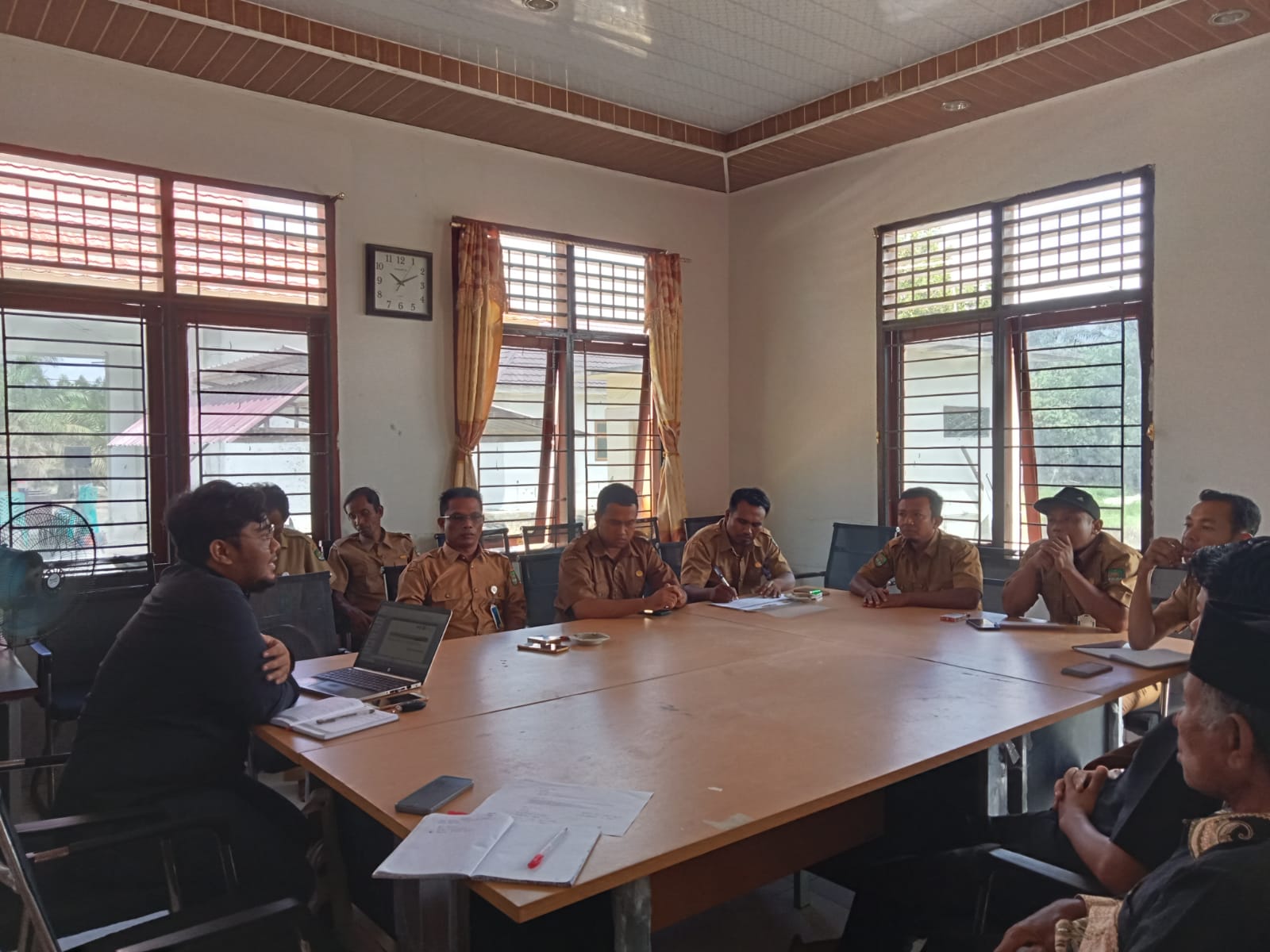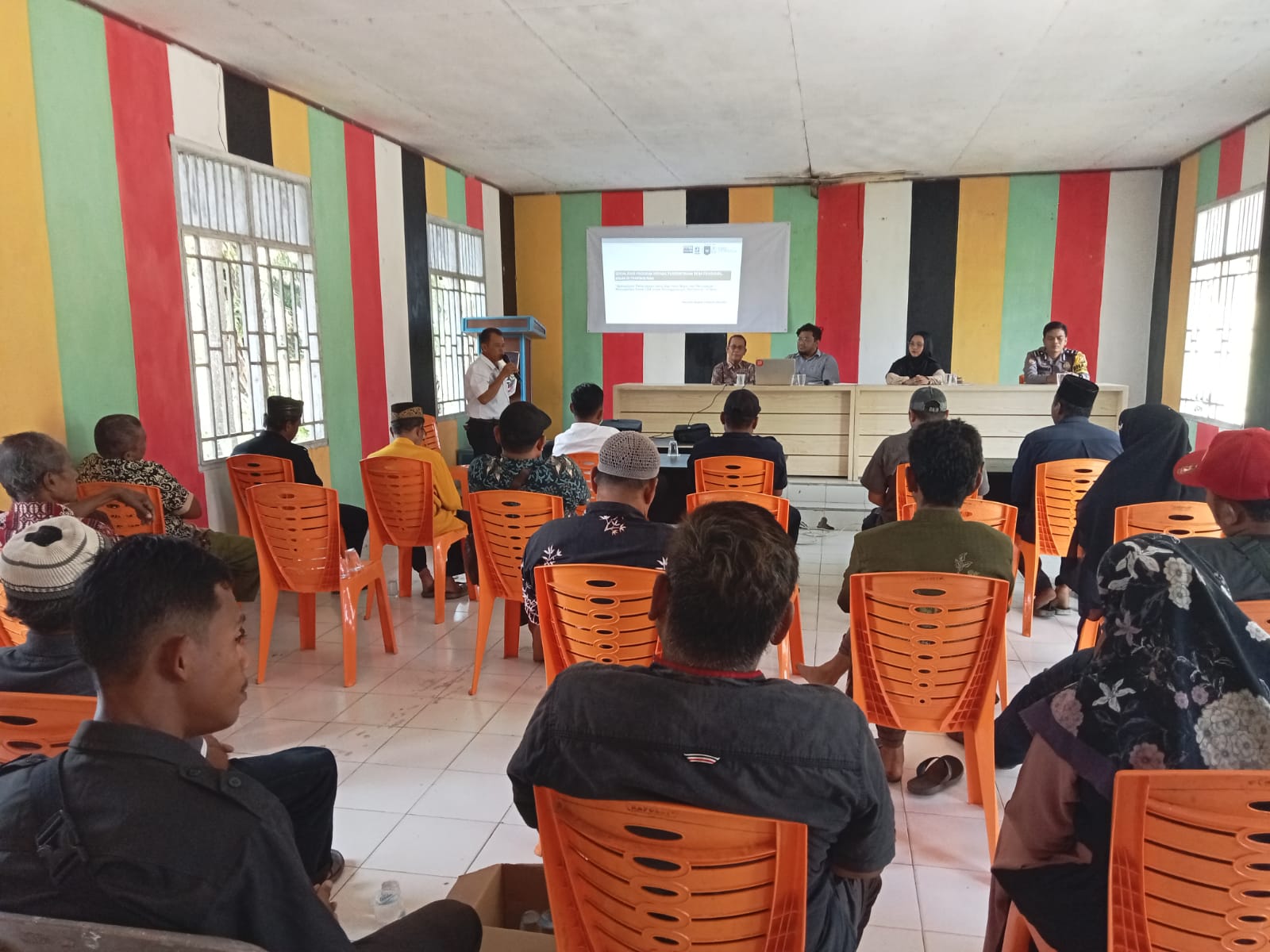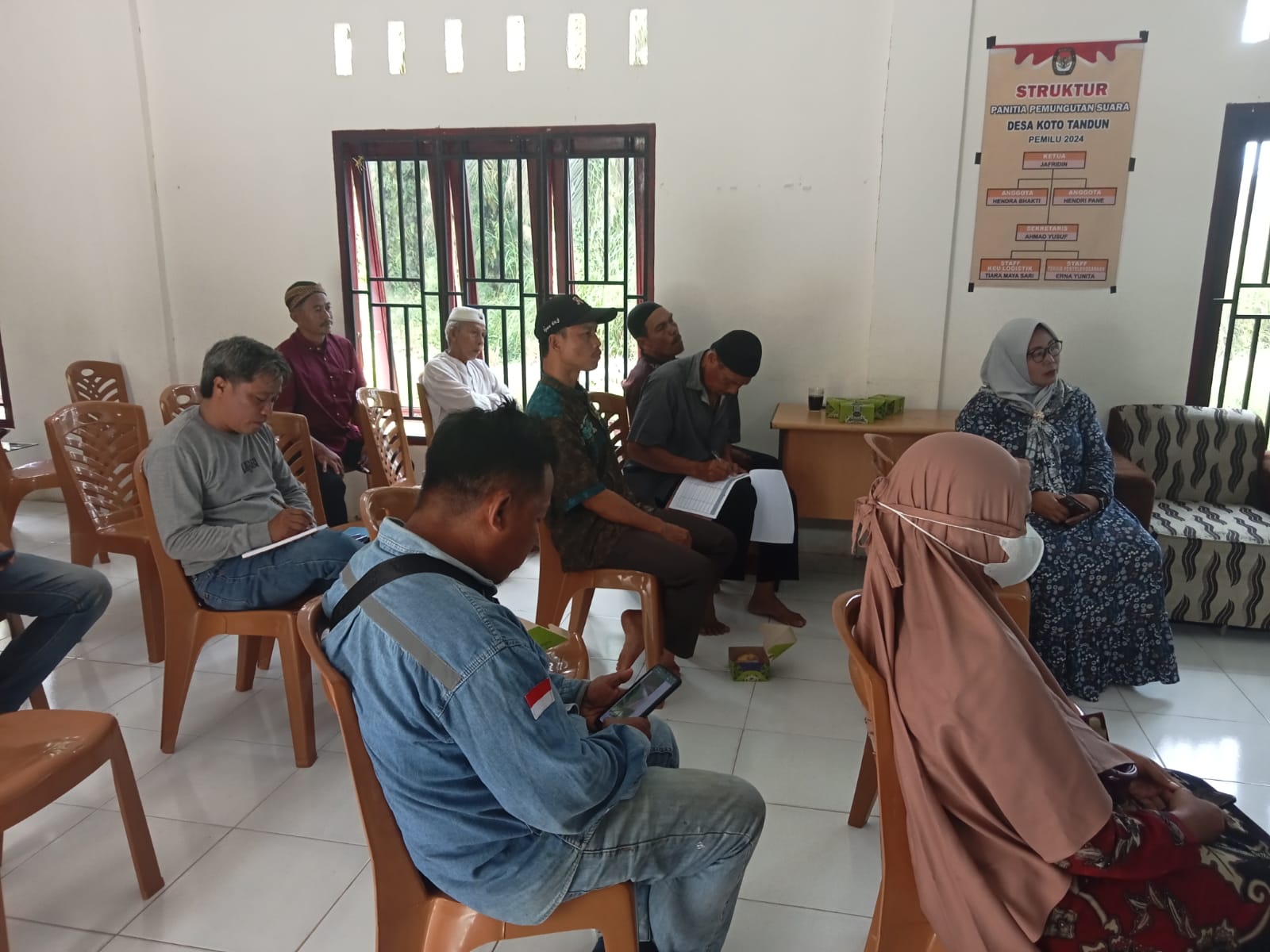FR. Fitra Riau invited university experts on Monday (20/03/2023) at the Batiqa Hotel Pekanbaru. This meeting was deliberately designed to discuss and explore various perspectives from various parties in terms of sharing experiences and sharing knowledge related to the concept of utilizing the ”DBH-MIGAS” Oil and Gas Revenue Sharing Fund.
Moderator said, Sartika Dewi. This discussion will later produce various points of answer as to how recommendations should be explored regarding the ideal concept of using DBH-Oil and Gas to alleviate poverty in oil-producing areas which will of course be illustrated in the form of scientific studies as material for advocating public policies in the three producing regions, namely Rokan Hulu district, Bengkalis district and Pelalawan district.
Apart from being attended by the Fitra Team, this meeting was also attended by AZ Fachry Yasin, an academic at the Riau Islamic University and also a Riau Community Leader. Dr. Sri Endang Kornita SE, M.Si and Dr. Dahlan Tampubolon, SE, M.Si from the University of Riau. Alexander Yandra, S.Ip.,M.Si who is currently the Dean of the Faculty of State Administration. Meanwhile, from Sultan Syarif Kasim State Islamic University, Dr.Mustiqowati Ummul Fithriyyah, M.Sc, who was the head of PSGA LP2M, was present. Sartika said.
Triono Hadi in his remarks said, “This discussion activity is a general capture of regional conditions and the policy situation in the regions. Have oil-producing areas that have a large number of wells made a good contribution in terms of the issue of poverty alleviation, providing proper access to education, health and good development infrastructure services and have the companies around the producing villages provided jobs for local people? this must be reviewed.
“From the baground of the 8 oil and gas producing areas in Riau that are currently being managed, there are 10 blocks that are in operation and 2 are still in the exploration stage. The production data is up to 205,376 bod or the equivalent of 27.8 percent of 2019 national production,” said Triono .
Even though Triono said again, in accordance with article 33 paragraph 3 of the 1945 Law, it has been explained that the earth and water and the natural resources contained therein are controlled by the state and used for the greatest prosperity of the people. In the context of the Oil and Gas Production Sharing Fund that is provided by the central government to the regions, it does not have a real effect on the regions where the regions are the producers of these natural resources.
He continued, it is precisely the producing regions that should not have inequality that we encounter but the fact is that there are inequalities in the basic service sector such as high poverty rates, education and health service infrastructure which are in not so good condition and it is felt that the facilities have not been accommodated as expected and this can said to be the result of natural research “The Curse of Natural Resources”. Fitra’s coordinator said.
Tarmidzi also added that based on data for 2019-2021, an average of 1.64% of oil and gas producing regions indicated encouraging conditions for economic development. This figure, if calculated, is far below the average economic growth in Riau, which is 1.78 percent. He said again, If viewed from the aspect of DBH-MIgas revenue, the data for the last four years shows that oil and gas producing regions in Riau are still in a relatively low condition.
Data from the districts of Rokan Hulu, Rokan Hilir, Meranti Islands and Kampar are actually below the province’s average with Bengkalis figures, DBH-Oil and Gas reaching Rp. 2.7 trillion, contributing an average of 27.3 percent, Rohil’s DBH-Oil and Gas realization reaching Rp. 6 trillion contributed 27.1 percent, Kampar Rp. 1.2 trillion contributed 18.5 percent, Rohul DBH-Migas Regency in 2018-2020 of Rp. 454.1 billion only contributed 9.4% of its regional income. Said Deputy Fitra.
So at this meeting, said Tarmidzi. From the data presented it is very important that we discuss this with 5 key questions, namely First, the policy development of the oil and gas DBH, Second, so far has the utilization of oil and gas DBH been optimal, Third, what is the level of welfare of the producing region related to, Fourth, how are the ideas related to ideal concept for poverty alleviation through the utilization of this Oil and Gas DBH. And fifth, of course, what recommendations can we note for the improvement of this study in the future.
While the academics who were present seemed to provide ideas and input. One of them was Dr Dahlan, Fazhri Yasin and Alexander Yandra who said the same thing that poverty alleviation policies should focus on alleviating rural areas because they said poverty in rural areas was very high and decreased very quickly, for example during the Covid period. If Covid goes down faster, the poverty rate will go down faster. If Covid hasn’t gone down, poverty will also go up faster.
This is an illustration that the poverty rate can actually be designed from the economic growth of the income and buying and selling of rural communities if we want to be honest about it and carry out the solution. In addition, he said again, if you want to measure poverty, you have to look at the geographical conditions of an area, not all of them have to prioritize economic principles, but you have to measure the poverty rift using sociological and anthropological approaches.
Which he explained, not all of our regions can be the same for an economic-based approach. We have to look at the condition of his house, the availability and ownership of land in the village. nice house, doesn’t have plantation land, his life is full of bank arrears, doesn’t have a job but he doesn’t want to be called poor. This is the problem that we cannot measure poverty by ignoring actual geographical facts. Said Dr dahlan Tampubolon.
In addition, it was recognized by Dr. Mustiqowai Ummul Fithriyya, acknowledged that there is no form of transparency in the management of DBH-Oil and Gas and we do not know whether the utilization of DBH-Oil and Gas has accommodated women’s issues or not. What I know so far hasn’t been there so the encouragement I offer is how there is a quota of 30 percent for DBH MIgas for programs that direct gender mainstreaming, especially for regions that have contributed to revenue in the oil and gas sector.
The same thing was conveyed by Dr. Sri Endang Kornita, that apart from focusing on directing programs that are pro-women, one thing that should not be forgotten is how to supervise the management of DBH-Oil and Gas. So if the management of the Oil and Gas DBH is well managed and well controlled, of course it will also foster a positive level of transparency and accountability for the utilization of this DBH.
triono concluded that the connection between what was conveyed by academics was true, so that the problem of poverty would never be completely resolved. What Fitra expects from optimizing the utilization of the Oil and Gas DBH is a change in the governance scheme in the distribution mechanism to the regions, as an example we have implemented in Pelalawan district where we formulate the distribution of the Oil and Gas DBH in the Village Fund Allocation ”ADD”
Triono explained, ADD is based on oil and gas, which are oil and gas producing villages that we know as ring 1, namely villages where part or all of the area is a drilling location, temporary collection of oil and gas production, Ring 2 is a village that is not the main operating area for oil drilling earth with a radius of 600 meters and only has pipe flow support facilities and Ring 3 is geographically adjacent to the producing village and the main drilling facilities. We encourage the regional government of Pelalawan to provide stimulus to increase the village fund allocation which we take from 10 percent of DBH + DAU.
So he said this was a change that had a good impact on services around the producing village. He continued, and the use of DBH to be directed to villages, maybe this is one of the policy alternatives that we can illustrate in this advocacy, especially for Bengkalis and Rokan Hulu districts, while for Pelalawan district which has already implemented this scheme, of course we will strengthen it again. Close Triono Hadi ** Tf
Reportage writer Taufik
